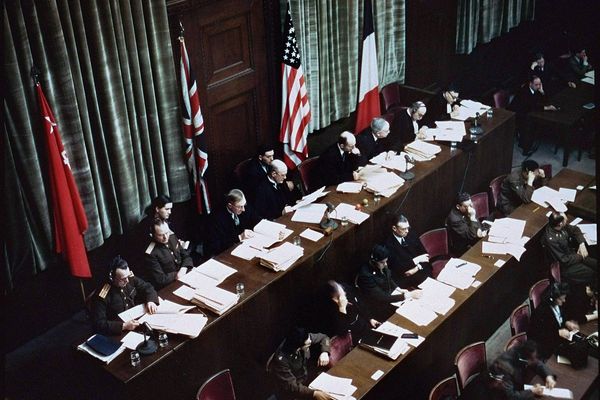“The suggestion that it would take 3.5 years to obtain documents about Nazi war criminals that Canada has known about for decades is deplorable,” said David Rosenfeld of B’nai Brith Canada.
By Dion J. Pierre, The Algemeiner
A Canadian Jewish group this week criticized the federal government for rejecting a freedom of information (FOI) request for documents disclosing the names of German emigrants the government investigated in the 1980s for being Nazi war criminals.
On Monday, B’nai Brith Canada said the office established under Canada’s Access to Information and Privacy (AITP) Act told the group it would need an “unreasonable” amount of time to compile the names requested in its FOI.
David Rosenfeld — a member of the organization’s Matas Law Society currently providing B’nai Brith legal counsel in its efforts — called AITP’s system for processing freedom of information requests “seriously flawed” and that the group was “outraged by the government’s refusal.”
In 1985, after reports emerged that Nazi physician Josef Mengele requested approval to move to Canada in 1962, Canadian Prime Minister Brian Mulroney created the Deschênes Commission, tasking it with determining if and how many Nazis lived in the country.
The commission reported that Canada had harbored Nazi emigrants after World War II, finding that the country was a “dumping ground” for ex-Nazis placed there by U.S. intelligence officials and the Royal Canadian Mounted Police.
It also recommended that the 20 Nazi war criminals it identified face legal consequences and that the backgrounds of several hundred other immigrants be investigated.
But large portions of the Deschenês Commission report were redacted, including the names of the suspected ex-Nazis. At the time, the Canadian government explained that protecting their identities ensured they would receive due process
Ultimately, charges were filed against four, with one case resulting in an acquittal while two others were dropped and another stayed.
“The suggestion that it would take 3.5 years to obtain documents about Nazi war criminals that Canada has known about for decades is deplorable,” Rosenfeld said in a statement.
“This response further supports the urgency of B’nai Brith’s request to obtain access to these records — to ensure that such documents are properly preserved and easily accessible to the public and to ensure accountability for Nazi war criminals who may have fled Canada, or who may still be in Canada, and evaded deportation and prosecution,” he added.
B’nai Brith Canada’s legal affairs director, Sam Goldstein, seconded Rosenfeld’s calls for full disclosure, noting that “we still have a few Holocaust victims who can act as witnesses.”
“If we’re unable to get these documents fairly quickly, we would consider joining the existing case that demands the National Archives speed up response times,” he continued, referring to researcher Michael Dagg’s recent petition for a judicial order mandating the release of documents for which he was told to wait 80 years.
Long waits for historical records and other government information are common in Canada, CTV News said in January.
Michael Dagg’s lawyer, Paul Champ, told the outlet that “government departments view access to information legislation as an inconvenience that they can ignore” and should “facilitate access to Canadians, not help bury government secrets.”
